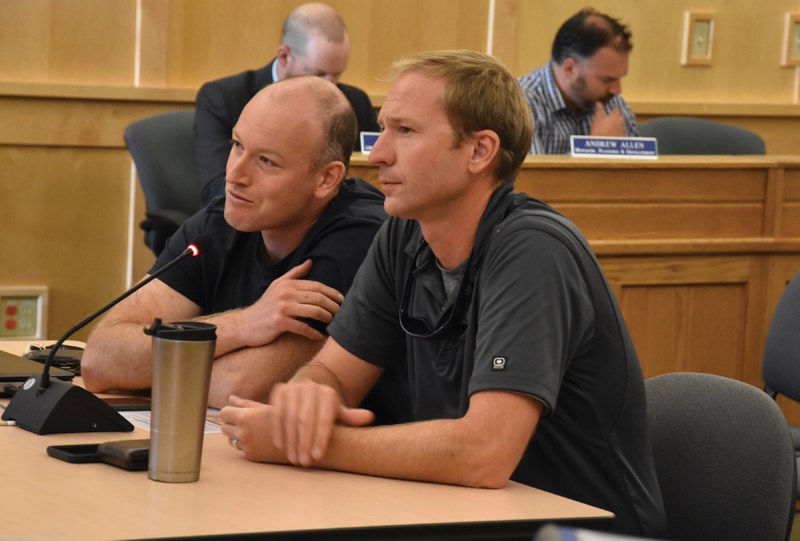A fledgling local adventure tourism business has cleared another hurdle after Sunshine Coast Regional District (SCRD) directors voted to support the company’s application to the province to access remote mountains and lakes on the Sunshine Coast.
The decision was not a unanimous one, though, with Roberts Creek director Mark Lebbell opposing the motion and several directors voicing their concern with the project. The provincial referral contains 10 conditions, such as providing an emergency management plan to the SCRD and incorporating fire protection measures and an environmental assessment.
This was the second time directors voted on the application, which was submitted by business partners Kris Sneddon and Paul Tosczak. If they get approval from the province to operate in areas such as Phantom Lake, Woodfibre Lake, Clowhom Lake and near Mt. Crucil and Buck Mountain, it will be the first local business of its kind to operate in those areas of the Coast.
The company, Sunshine Coast Mountain Adventures, would provide helicopter rides into the backcountry and guided biking, hiking and climbing routes and even “heli-picnics.”
Directors sought an extension on voting on the referral in June and encouraged the owners to engage the public by hosting a public information meeting, by meeting with SCRD advisory planning commissions (APCs) and by appearing as a delegation before directors at a committee.
Since June, Sneddon and Tosczak attended APCs in Pender Harbour, Roberts Creek and West Howe Sound, as well as the natural resource advisory committee, but they didn’t hold a public information meeting.
They did appear as an invited delegation at the SCRD’s Sept. 6 planning committee where Tosczak admitted they had “drawn a lot of attention from concerned people.” They said it was “a matter of time before” wealthier non-local companies make inroads and that they wanted to “take a stab at” the industry, “ourselves being a locally, home-grown couple of guys that have a vested interest in the community.”
They did not provide specific answers when directors asked how they would incorporate concerns raised by APCs, and when asked whether they would hold a public information meeting, they said they would do so only if legally required.
SCRD chair Bruce Milne said he was very hesitant after listening to them “simply discard” the directors’ questions and said their resistance to working with the community was “upsetting.”
Despite those concerns, Milne said he remained supportive of a local backcountry tourism business and said it was an opportunity for “our community to take control” of the emerging industry on the Coast.
Several directors raised concern about the lack of regulation and land use planning in the tenure application areas. The most critical was Lebbell who said, “Some places should be left wild,” and called it the “Whistlerization” of the region.
Lebbell introduced a motion to recommend the province refuse the project, citing concerns for wildlife and the environment and the lack of land use planning in the area. Lewis seconded the motion, and said while he was not opposed to the proposal, he wanted to see it “regulated and managed” before operations start. The motion was defeated.
Halfmoon Bay director Garry Nohr said he has seen people fly planes into Phantom Lake from Whistler and Vancouver for picnics. “I thought to myself, wow, and here we are trying to regulate a local company and making it rough for them.”
Directors also asked the province to create regulations and set up a means of monitoring to control the company’s proposed activities in the backcountry.



